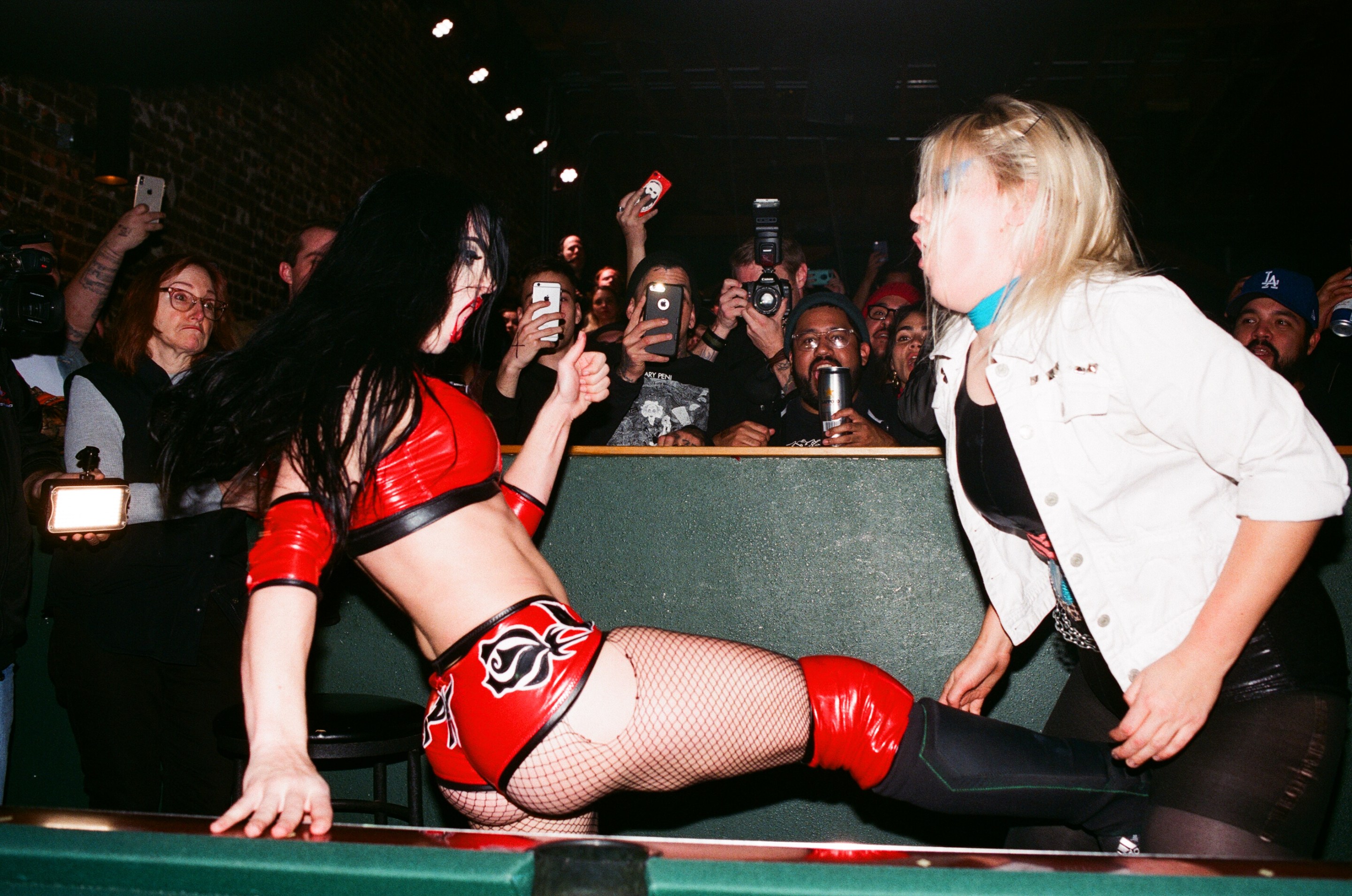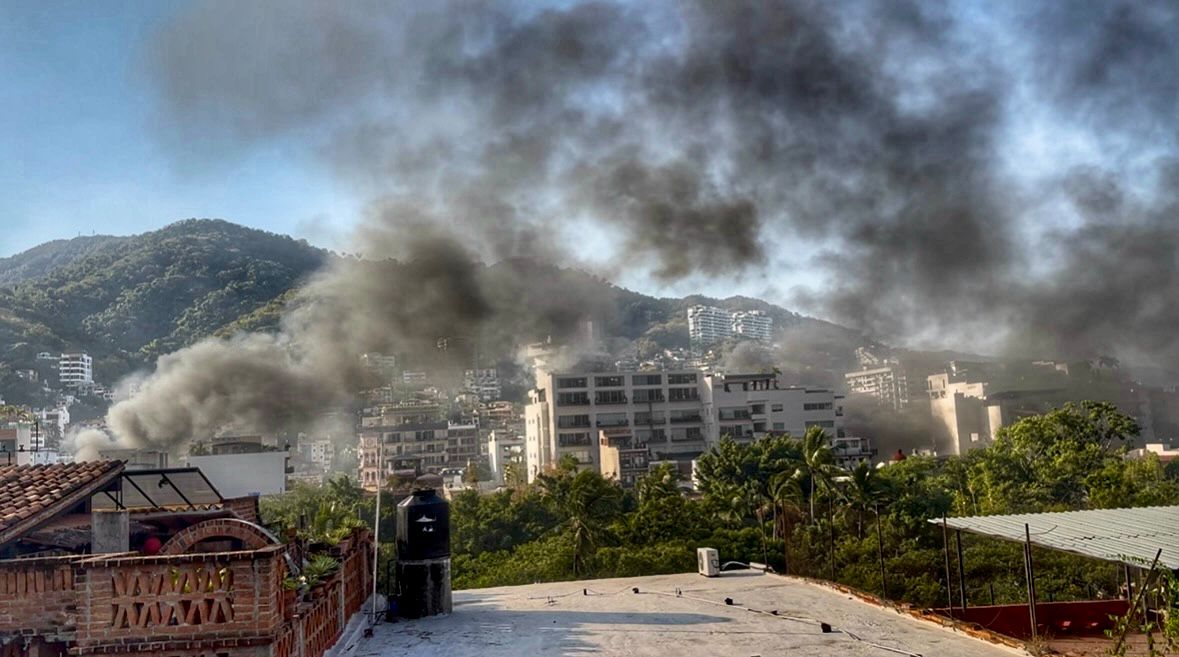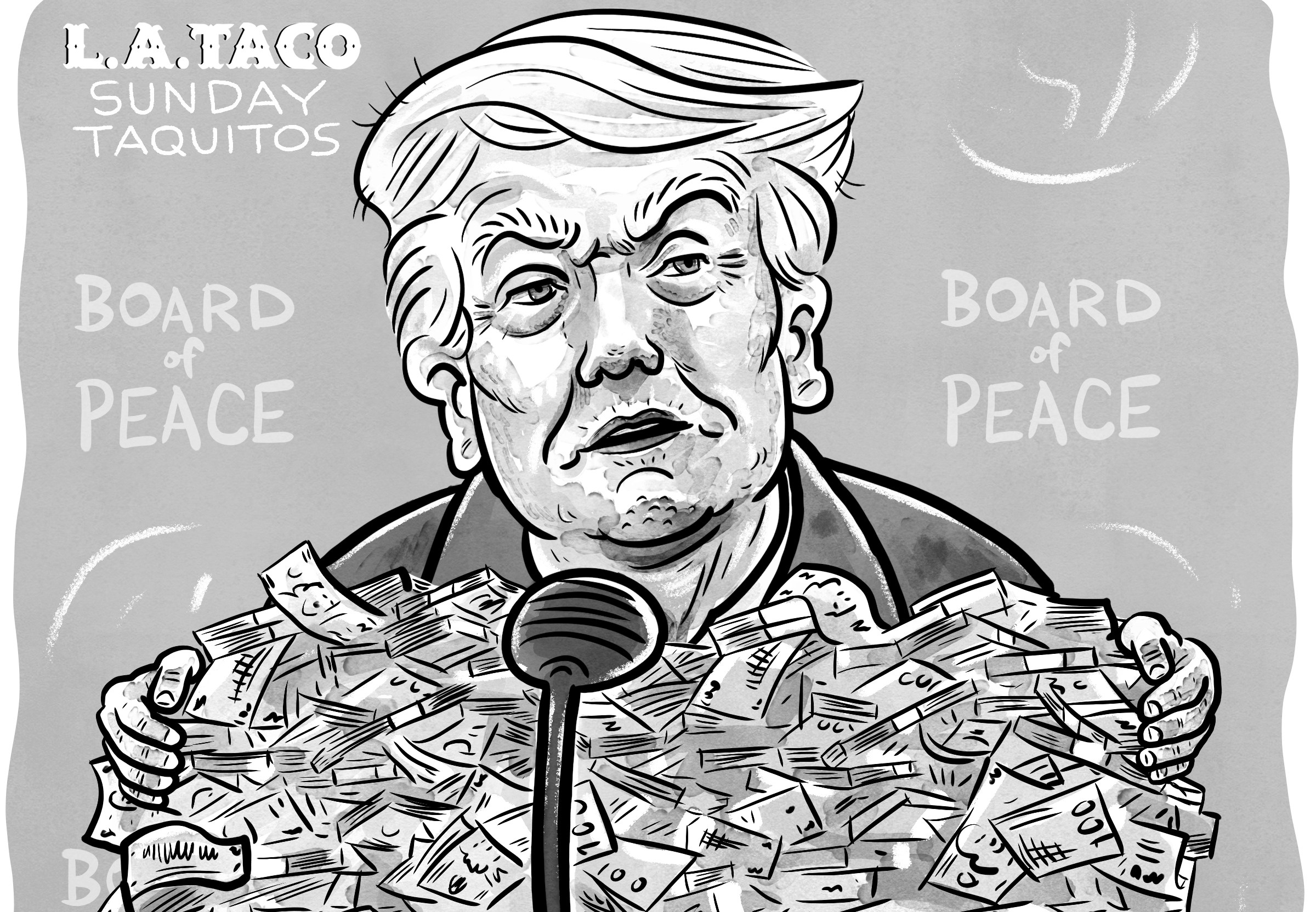[dropcap size=big]W[/dropcap]hen Madison Woodward began booking wrestling shows, he had no idea what he was doing. He spent 15 years booking punk and hardcore shows throughout Southern California and wanted to explore promoting his other passion, wrestling.
The one thing holding him back was access to a wrestling ring.
“Why can’t we have matches in a nightclub or in a bar?” thought Woodward. “Nothing was really stopping me and actually to be honest with you, financially renting a wrestling ring, I couldn’t get how, I still don’t get how most promoters do it.”
Suburban Fight is wrestling that takes place in a bar or a venue. The crowd circles the wrestlers like it’s a real, live fight, wrestlers maneuver through the crowd and engage with them. They’re in your face, they wrestle on top of a bar or anywhere within the confined space. There’s no ring and no rules.
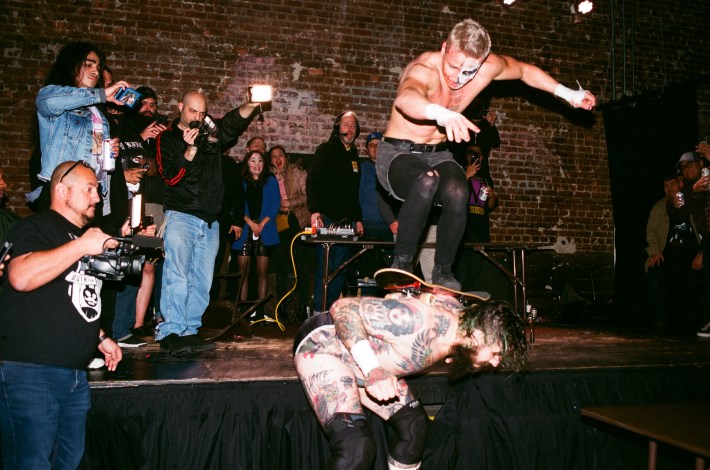
“There’s companies that do deathmatches, which [has] wrestlers bleeding everywhere in a bar and respect, but that's not our thing at all,” said Woodward. “Our whole thing is we want to do high-caliber wrestling matches in the most intimate environment.”
A little over two years in, Suburban Fight has taken place at The Hi Hat, The Resident, The Sahara Event Center in Las Vegas, and other random locations. Woodward has managed to bring the punk ethos and everything he’s learned booking punk and hardcore shows into professional wrestling.
“The whole thing that was hard in the beginning was convincing people and wrestlers of this thing I had in my head, which just sounds fucking crazy...”
“The whole thing that was hard in the beginning was convincing people and wrestlers of this thing I had in my head, which just sounds fucking crazy,” said Woodward, “This is a real thing, It’s not just shock value. We’re going to have really good wrestling matches, It's just a matter of not having a ring.”
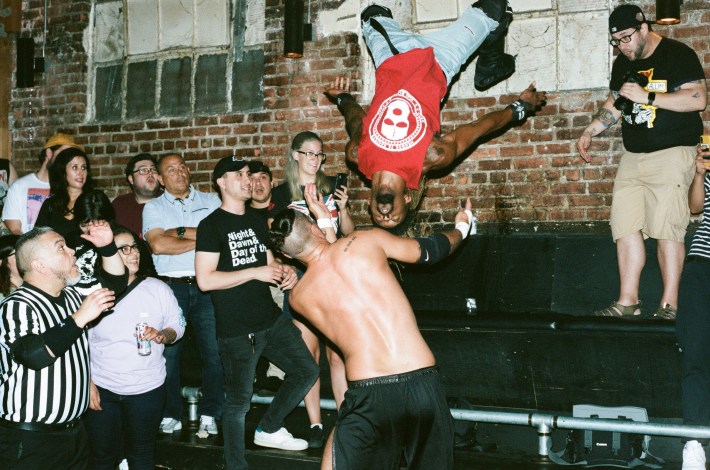
While the matches take place in a bar, Suburban Fight is professional wrestling and has attracted well-respected wrestlers like Joey Janela, Jungle Boy, Darby Allin, Brody King, and Lance Archer. All of those wrestlers have gone on to sign to bigger companies like All Elite Wrestling, Ring of Honor and New Japan Pro Wrestling.
“They're not Uncle Jimmy who wrestles in your backyard or something,” said Woodward. After going to a number of local wrestling shows, the lack of diversity and male-dominated culture was apparent to Woodward.
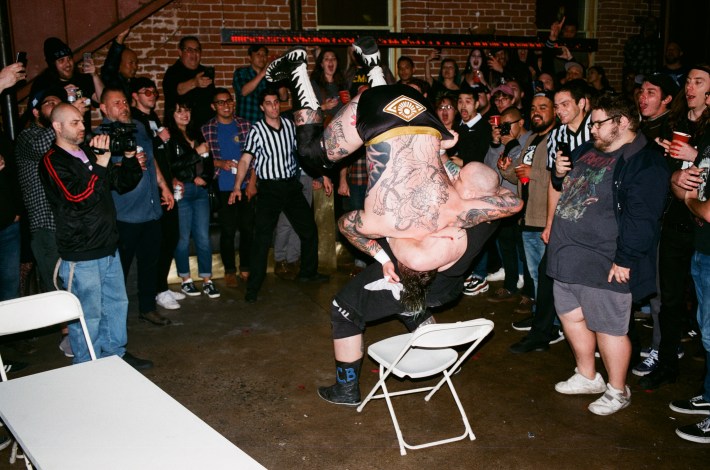
“I would take my girlfriend to these local wrestling shows and all these guys would be looking at her up and down, wrestlers would look at her up and down and she felt uncomfortable and of course she did, I would too,” said Woodward. “That was something I never wanted to fucking happen at my shows, I wanted to be super-inclusive of whatever sexuality or whoever you are.”
Woodward knew there were good female and LGBTQ wrestlers out there, so he made it a point to showcase these wrestlers at Suburban Fight.
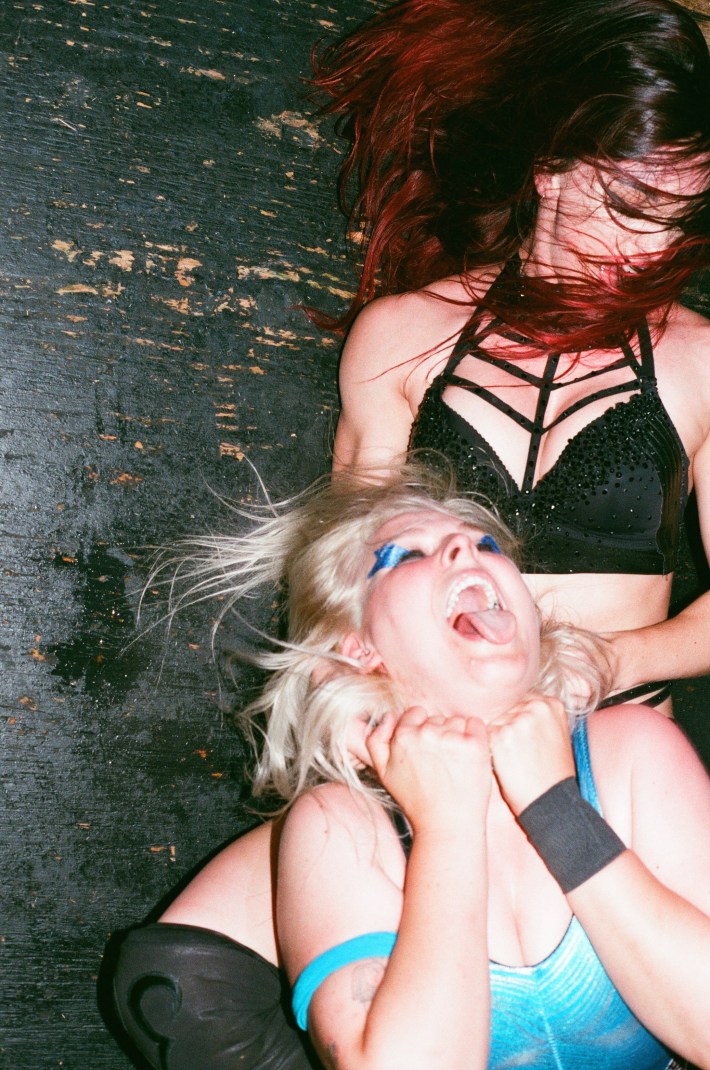
Through a mutual friend, Woodward connected with Tuna and invited her to take part in Suburban Fight. At the time, Tuna was working in Animation and getting a little burned out.
“My mindset was like I shouldn’t be doing a job where I’m sitting all the time when I'm young. I feel like I should be doing this when I'm old and I can't move,” said Tuna. “I'm just going to go for it. I'm going to be real bummed if I just like, I always wanted to, but never did it.”
After discovering a thriving independent wrestling scene in Southern California, Tuna enrolled at Knox Pro Wrestling Academy in Van Nuys and wanted to prove that women's wrestling is equally as great as men’s.
“I went to a show and I just was like, so bummed on how the women's wrestling was perceived,” said Tuna. “It was like cool, we’re going to throw 20 girls in a four-minute rumble, quick, ok, cool, next segment. It was just such a bummer and I thought man, I could do that.”
“When you wrestle without a ring, you really have to use psychology and you have to be creative with it...”
Outside of being a sport, wrestling is entertainment. It has the drama that is a mix of theatrics and physicality. Which is how Tuna found a used and bloody tampon in her mouth during a match and ended up going viral.
“Priscilla [Kelly] had always wanted to do this thing, she was like, I have this funny idea, but I’ve never had the right atmosphere for it,” said Tuna. “This is 21 and up, at a bar, this is kind of like the perfect thing for it.”
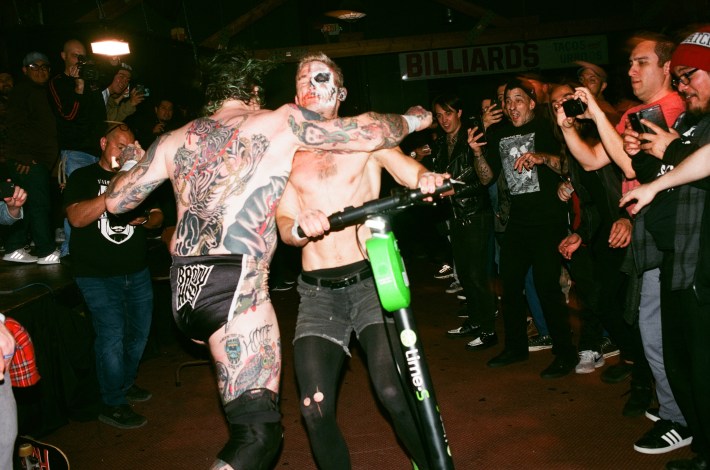
After some hesitation, Tuna agreed. She emphasized that Suburban Fight is a safe space, people are of age and it worked with the storyline of Priscilla’s character, but the aftermath was polarizing.
“When you wrestle without a ring, you really have to use psychology and you have to be creative with it,” said Tuna. “It's one of those things, where that’s what you're signing up for in the entertainment business or the wrestling business,” said Tuna.
After a couple of successful shows at The Resident, Woodward was getting pulled in a bunch of different directions. Half of his bosses loved the wrestling and the other half wanted to stop it altogether. The confusing feedback was the catalyst for Woodward to find a new home for Suburban Fight.
Through Sound and Fury, a Los Angeles hardcore festival that Woodward helps promote, he approached Britt Witt, the In-House Talent Buyer and Director of Programming at the Hi Hat in Highland Parking about hosting Suburban Fight.
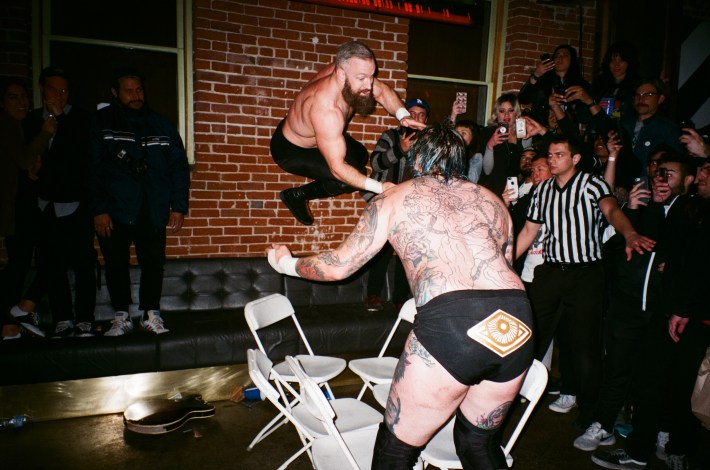
With all of the available space inside the Hi Hat, Witt yearned for doing something more with the space. She also happened to be a wrestling fan, so when Woodward proposed Suburban Fight she jumped at the chance.
“It really [feels] like it’s working at half its capacity when we’re just doing shows, there’s so many more things we could do,” said Witt.
“I was really excited to finally spread its wings and do something unusual, especially for a music venue and we’re just really excited at the thought of a no ring, no rules wrestling. At the time I couldn't even fathom how insane that could be.”
The next logical step for Suburban Fight seems to be adding a ring. After two years of existence, Suburban Fight is growing exponentially with upcoming shows in New York and the Bay Area. Eventually leading up to a two-day tournament that will crown a Suburban Fight champion.
“If I had a ring, I would just be any other wrestling show you could see in L.A. every weekend,” said Woodward. “There's really no difference I think.”
The next Suburban Fight will include three matches and a five-wrestler jack-o-lantern scramble on Oct. 19th at The Hi Hat.
